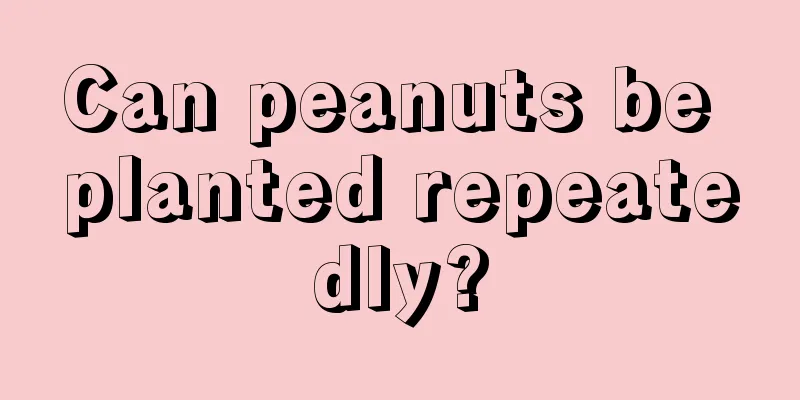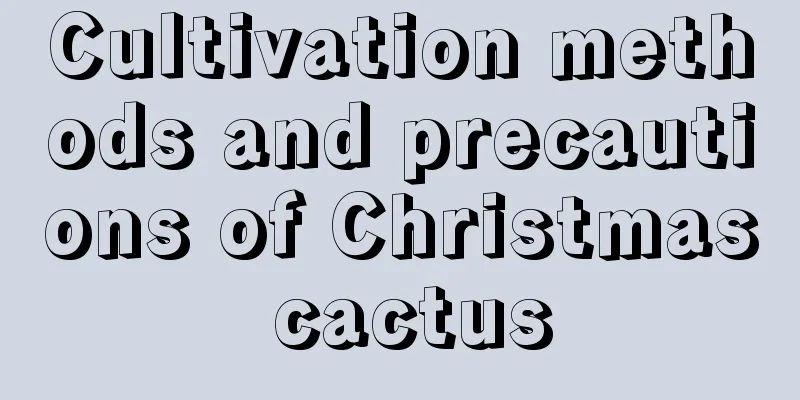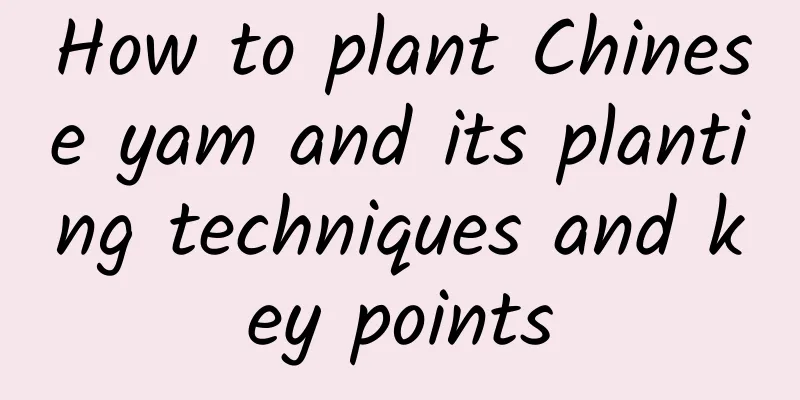Can peanuts be planted repeatedly?

|
Continuous cropping refers to planting the same crop on the same piece of land year after year. For some crops that are tolerant to continuous cropping, continuous cropping can effectively reduce the transfer of land and improve land utilization. So can peanuts be planted repeatedly? Let’s learn more about it below. Can peanuts be planted repeatedly? Like other leguminous plants, peanuts cannot tolerate repeated cropping. Continuous planting will not only deteriorate the quality of peanuts, but also reduce yields. According to statistics, the yield of peanuts will decrease by about 20% in one year of continuous planting, and by more than 30% in two years of continuous planting. The longer the continuous planting period, the greater the reduction in yield. How to solve the problem of repeated peanut cropping? 1. Variety selection For repeated cropping, in addition to choosing appropriate tillage and management measures, choosing disease-resistant varieties is actually a good choice, which can fundamentally reduce the possibility of repeated cropping. 2. Rotational planting Generally speaking, peanuts need to be rotated with other crops every 1-2 years. It is recommended to rotate with other field grass crops such as wheat , rice, corn, sorghum , millet, etc. for better results. 3. Deeply plow the soil After harvesting peanuts, the soil should be plowed deep to a depth of 50 centimeters. Turning the soil not only allows it to be sterilized and disinfected through sunlight, but also loosens the soil, increases soil temperature and improves soil moisture, which helps reduce the impact of repeated peanut planting. 4. Seed dressing with chemicals The most obvious harm of continuous peanut cropping is the accumulation of various pathogens and pests in the farmland soil. Therefore, in order to solve the problem of continuous planting of peanuts, it is essential to mix the seeds with pesticides. The general seed dressing formula for disease control is: thiophanate-methyl + fludioxonil + metalaxyl-M; the seed dressing formula for insect pest control is: imidacloprid + fludioxonil + thiophanate-methyl. 5. Fertilization adjustment For plots of land where bacterial wilt and stem rot are seriously affected by continuous cropping year after year, it is necessary to apply microbial agents or farmyard manure to improve the soil microbial environment and quantity and restore the soil's own cleaning ability. 6. Mulching Mulching with plastic film is an important measure to improve the continuous cropping of peanuts, which can increase the yield by more than 40% compared with direct open field planting. Moreover, continuous use of plastic mulch to cover peanut planting will not cause serious reduction in peanut production. In general, peanuts are not suitable for continuous planting, which brings many negative effects. If we do not pay attention to the problem of continuous planting of peanuts and master the relevant solutions, it will be difficult to improve the yield and quality of peanuts.
|
<<: Maintenance measures for the pine tree and soil requirements
>>: How to get a high survival rate of cuttings of the single tree, other propagation methods
Recommend
Does Dancing with the Wind need to be watered after planting? The correct way to water it
1. Do you need to water? After planting the Danci...
How often should orchids be watered and how should they be watered?
Orchid is an elegant flower with strong ornamenta...
His succulents didn't die all summer. Are potting plants really that useful?
Enhance beauty The succulent grass is not a thin ...
How many years does Brazilian cherry bear fruit?
Brazilian cherry has been planted for several yea...
I risked half my life to grow succulents
First meeting It was a sunny spring day. I passed...
Chicken Ingredients and Recipes
Chicken is very delicious and is a source of prot...
How to grow African violets? What are the precautions?
1. How to cultivate African violets 1. Light: Afr...
The difference between wild buckwheat and buckwheat
1. Leaves The leaves of wild buckwheat are single...
Can blueberries be grown in pots?
Can blueberries be grown in pots? Blueberries can...
Are cherries suitable for planting in the south?
1. Is it suitable for planting? Cherries are wide...
What to do if lucky bamboo leaves wither
1. Water The first thing we need to pay attention...
How to plant Osmanthus fragrans seeds
Select container The first step is of course this...
Is Chongqing suitable for growing lychee trees? What varieties of lychees can be grown?
Planting lychee trees in Chongqing You can grow l...
Cultivation methods and precautions of orchid canna
1. Lighting This plant loves sunlight, so it need...
Potato planting and harvesting time
Potato planting time Potatoes are usually planted...









